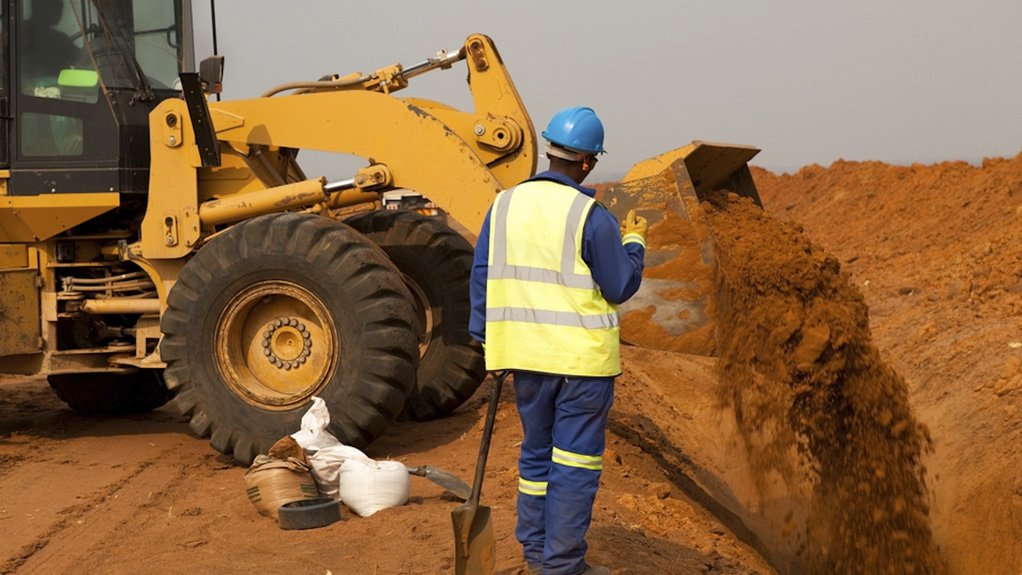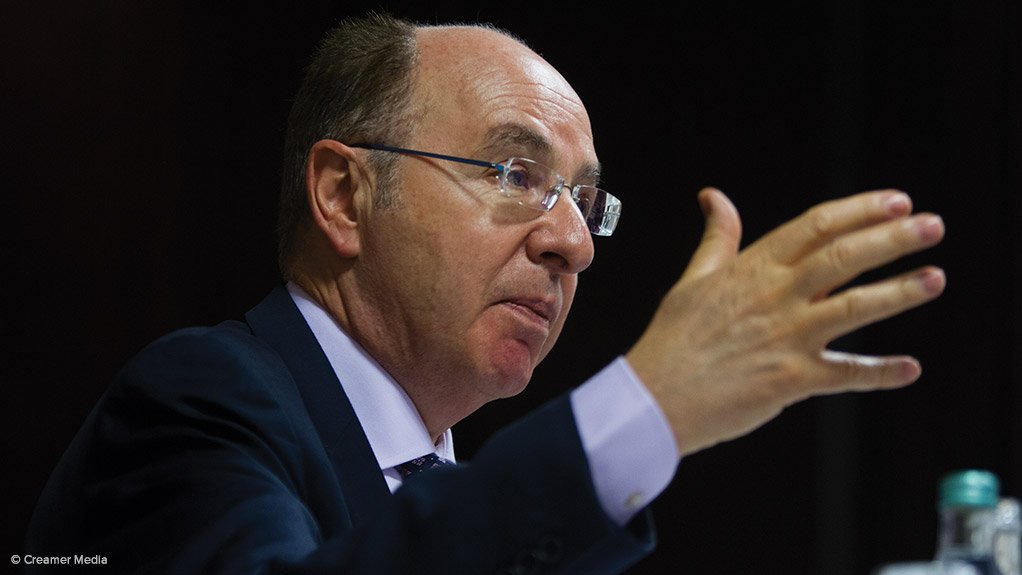Legislative uncertainty, tougher regulations plague Africa’s mining sector



TAKING A STAND Recent legal actions relating to the extractive industries in Africa is indicative that there is a ‘clamping down’ on corrupt practices at the local and international level
PETER LEON With the exception of Ghana and Botswana the other major African mining jurisdictions have become significantly less business-friendly in recent years
Photo by Duane Daws
Mine developers and providers of capital are facing a “regulatory tsunami” imposed by traditional investee countries in Africa, combined with frequently uncertain internal regulatory regimes, says banking group Nedbank Capital mining and metals head Paul Miller.
Miller remarks that, with the launch of risk management framework the Equator Principles in 2003, companies signed up voluntarily to the stakeholder principles that were established. “This impacted people like myself that is involved in banking institutions quite significantly, as this world-class set of principles relating to environment and societal stewardship is critically important to securing finance for mining projects.”
He highlights that the passing of nonmining-specific regulations currently is “particularly interesting”, as South Africa’s Financial Intelligence Centre Act (Fica) regulations or the is UK equivalent, the Know Your Customer (KYC) regulations, are driven by intergovernmental body the Financial Action Task Force, which aims to combat illicit financial flows.
Miller says that this has very much complicated financial institutions’ lives “for the better”, as, by having to perform this high-level due diligence analysis, banks have been able to decline certain clients.
“Fica certainly had a role to play in South Africa’s major financial institutions terminating relations with the Gupta family-owned Oakbay Resources & Energy.”
Miller also points out that, in 2015, the US’s Securities and Exchange Commission (SEC) charged diversified mining major BHP Billiton with violating the Foreign Corrupt Practices Act (FCPA) when it sponsored the attendance of foreign government officials at the 2008 Summer Olympics. The miner agreed to pay a $25-million penalty to settle the SEC’s charges.
Moreover, he notes that gold miner Gold Fields was investigated for over three years by the SEC’s foreign bribery unit with regard to its $210-million payment to a black-economic-empowerment fund in South Africa. However, in 2015, the SEC closed the investigation without filing charges against the gold miner.
Additionally, Miller points out that the UK’s Serious Fraud Office is currently investigating diversified natural resources producer Eurasian Natural Resources Corporation for alleged corruption relating to its acquisition of mines and prospects in the Democratic Republic of Congo. Diversified mining major Rio Tinto earlier this month also had one of its executives resign and suspended another in connection with a company investigation into emails that reference $10.5-million in payments made to a consultant for helping to acquire rights to iron-ore deposits in Guinea.
He says that these examples illustrate “clearly” the impact of how business, particularly relating to the extractive industries in Africa, is changing and that there is a “clamping down” on corrupt practices at local and international level.
Further, Miller notes that other pieces of legislation and global initiatives, such as the US’s Dodd-Frank Act and the Kimberly Process Certification Scheme, are preventing “conflict minerals” from entering the mainstream market.
Meanwhile, law firm Herbert Smith Freehills partner and Africa chair Peter Leon highlights that the early 1990s were characterised by the promotion of the Washington Consensus, which was a set of economic policy prescriptions constituting the standard reform package that was promoted to developing countries by Washington-based institutions such as the International Monetary Fund, the World Bank, and the US Treasury Department.
He notes that the World Bank encouraged significant mineral law reforms in key African mining jurisdictions during this period, including Ghana, Botswana, Tanzania and Nigeria. These changes entailed reducing the level of involvement of the State in the mineral resources sector and instating progressive, business-friendly mining codes.
However, Leon says now it seems that, with the surprise US Presidential election victory of Donald Trump, many of the central points of the policy relating to trade liberalisation and deregulation of market entry policies may be brought to a halt, owing to his antiglobalisation stance, which includes opposition to free trade agreements.
He adds that Trump has been very critical of the US’s FCPA, which is an important empowering piece of legislation, as it prohibits companies issuing stock in the US from bribing foreign officials for government contracts and other business.
“Therefore, you may well see much less vigour and rigor around the application of the FCPA under Trump. However, unlike South Africa, the US Department of Justice and the SEC are autonomous and independent.”
Nonetheless, Leon points out that, under former President George Walker Bush’s administration, FCPA investigations were “much less rigorous” than they were, for example, under his predecessor, former President Bill Clinton.
“Therefore, I would suspect that FCPA investigations will be less vigorous under Trump than they are currently under President Barack Obama’s administration, which has been very assiduous in prosecuting FCPA cases worldwide,” he highlights.
Moreover, Leon says that, with the exception of Ghana and Botswana, the major African mining jurisdictions have become significantly less progressive and business friendly in recent years. Therefore, he laments that it has become evident that the Washington Consensus, which was widely accepted in Africa in the 1990s, has been significantly eroded in recent years.
Leon further predicts that African countries will become more interventionist, which he believes is counterintuitive, owing to the current realities of depressed commodity prices, as countries should be doing all they can to attract foreign investment.
Miller and Leon were participating in a webcast, earlier this month, as a preview to the 2017 edition of the Investing in African Mining Indaba, which will take place between February 6 and 9 in Cape Town, South Africa.
Comments
Press Office
Announcements
What's On
Subscribe to improve your user experience...
Option 1 (equivalent of R125 a month):
Receive a weekly copy of Creamer Media's Engineering News & Mining Weekly magazine
(print copy for those in South Africa and e-magazine for those outside of South Africa)
Receive daily email newsletters
Access to full search results
Access archive of magazine back copies
Access to Projects in Progress
Access to ONE Research Report of your choice in PDF format
Option 2 (equivalent of R375 a month):
All benefits from Option 1
PLUS
Access to Creamer Media's Research Channel Africa for ALL Research Reports, in PDF format, on various industrial and mining sectors
including Electricity; Water; Energy Transition; Hydrogen; Roads, Rail and Ports; Coal; Gold; Platinum; Battery Metals; etc.
Already a subscriber?
Forgotten your password?
Receive weekly copy of Creamer Media's Engineering News & Mining Weekly magazine (print copy for those in South Africa and e-magazine for those outside of South Africa)
➕
Recieve daily email newsletters
➕
Access to full search results
➕
Access archive of magazine back copies
➕
Access to Projects in Progress
➕
Access to ONE Research Report of your choice in PDF format
RESEARCH CHANNEL AFRICA
R4500 (equivalent of R375 a month)
SUBSCRIBEAll benefits from Option 1
➕
Access to Creamer Media's Research Channel Africa for ALL Research Reports on various industrial and mining sectors, in PDF format, including on:
Electricity
➕
Water
➕
Energy Transition
➕
Hydrogen
➕
Roads, Rail and Ports
➕
Coal
➕
Gold
➕
Platinum
➕
Battery Metals
➕
etc.
Receive all benefits from Option 1 or Option 2 delivered to numerous people at your company
➕
Multiple User names and Passwords for simultaneous log-ins
➕
Intranet integration access to all in your organisation



















